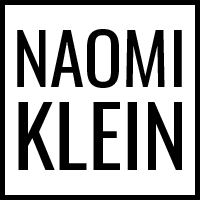30 May Give Me a Hug: When Multinationals Want to Be our Friends
May 30th, 2001
By Naomi Klein
When I was 17, I worked after school at an Esprit clothing store in Montreal. It was a pleasant job, mostly involving folding cotton garments into little squares so sharp that their corners could take out your eye.
But, for some reason, corporate headquarters didn’t consider our T-shirt origami to be sufficiently profitable. One day, our calm world was turned upside down by a regional supervisor who swooped in to indoctrinate us in the culture of the Esprit brand—and increase our productivity in the process. "Esprit," she told us, "is like a good friend."
I was skeptical, and I let it be known. Skepticism, I quickly learned, is not considered an asset in the low-wage service sector. Two weeks later, the supervisor fired me for being in possession of that most loathed workplace character trait: "bad attitude."
I guess that was one of my first lessons in why large multinational corporations are not "like a good friend," since good friends, while they may do many horrible and hurtful things, rarely fire you.
So I was interested when, earlier this month, the TBWA/Chiat/Day advertising agency rolled out the new "brand identity" for Shoppers Drug Mart. (Rebranding launches are, in corporate terms, like being born again). It turns out that the chain is no longer "Everything you want in a drugstore" i.e., a place where you can buy things you need—but is now a "caring friend"—a caring friend that, remarkably, takes earthly form in a chain of 800 drugstores with a $22-million ad budget burning a hole in its pocket.
Shoppers’ new slogan is "Take care of yourself," selected, according to campaign creator Pat Pirisi because it echoes "what a caring friend would say." Get ready for it to be said thousands of times a day by young cashiers as they hand you plastic bags filled with razors, dental floss and diet pills. "We believe this is a position Shoppers can own," Mr. Pirisi says.
Leaving aside the somewhat unsettling idea of "owning" friendship, asking clerks to adopt this particular phrase as their mantra seems a bit heartless in this age of casual, insecure, underpaid McLabour. Service-sector workers are so often told to take care of themselves—since no one, least of all their mega-employers, is going to take care of them.
Yet it’s one of the ironies of our branded age that, as corporations become more remote by cutting lasting ties with us as their employees, they are increasingly sidling up to us as consumers, whispering sweet nothings in our ear about friendship and community. It’s not just Shoppers: Wal-Mart ads tell stories about clerks who, in a pinch, lend customers their own wedding gowns, and Saturn ads are populated by car dealers who offer counselling when customers lose their jobs. You see, according to the new marketing book, Values Added,modern marketers have to "make your brand a cause and your cause a brand."
Maybe I still have a bad attitude, but this collective corporate hug feels about as empty today as it did when I was an about-to-be-unemployed sweater folder. Particularly when you stop to consider the cause of all this mass-produced warmth.
Explaining Shoppers’ new brand identity to the Financial Post, Mr. Pirisi said, "In an age when people are becoming more and more distrustful of corporations—the World Trade Organization protests will attest to that—and at a time when the health-care system isn’t what it used to be, we realized we had to send consumers a message about partnership."
Ever since large corporations such as Nike, Shell and Monsanto began facing increased scrutiny from civil society—mostly for putting short-term profits far ahead of environmental responsibility and job security—an industry has ballooned to help these companies respond. It seems clear, however, that many in the corporate world remain utterly convinced that all they have is a "messaging problem," one that can be neatly solved by settling on the right, socially minded brand identity.
It turns out that’s the last thing they need. British Petroleum found this out the hard way when it was forced to distance itself from its own outrageous rebranding campaign, "Beyond Petroleum." The oil company’s European consumers told BP that it had better change its business practices before its brand identity.
As evidence of the state of corporate confusion, I frequently find myself asked to give presentations to individual corporations. Fearing that my words will end up in some gooey ad campaign, I always refuse.
But I can offer this advice without reservation: Nothing will change until corporations realize that they don’t have a communications problem. They have a reality problem.



